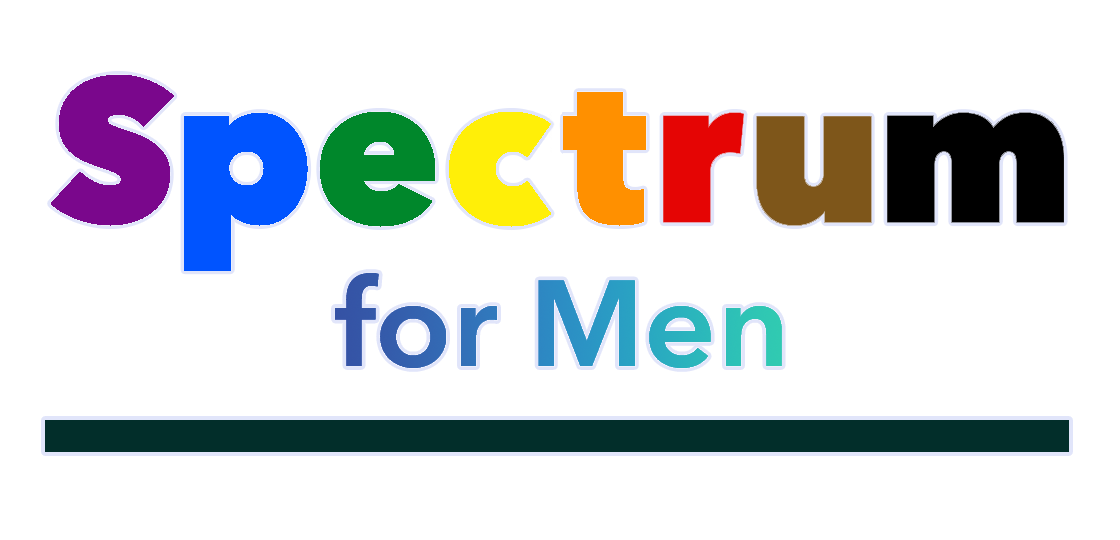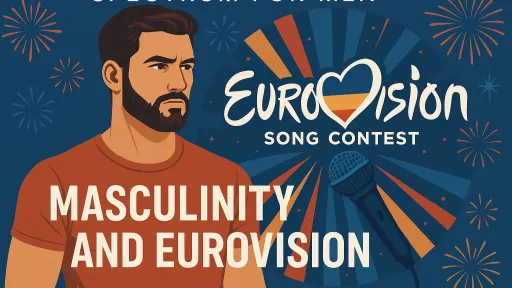Sequins, Strength, and Selfhood: What Eurovision Teaches Us About Masculinity
At first glance, the Eurovision Song Contest might seem like little more than sparkle, spectacle, and the occasional key change catastrophe. But beneath the rhinestones lies something far more radical: a global stage where masculinity isn’t just performed — it’s reimagined.
For decades, Eurovision has been a space where men can embrace softness, sensuality, flamboyance, tenderness, and power — often all in the same three-minute set. And whether through a shimmering ball gown or a stripped-down piano ballad, these performers aren't just entertaining. They're teaching us what manhood can be when it’s freed from the box it’s so often shoved into.
Breaking the Binary, One Performance at a Time
Eurovision doesn’t merely bend gender norms — it gleefully tosses them into a confetti cannon.
From bare-chested rock stars in eyeliner to bearded queens in couture, male-presenting performers on the Eurovision stage have long explored a spectrum of gender presentation. But more than just a visual statement, these choices speak volumes about selfhood — about refusing to conform, and choosing authenticity over approval.
This isn’t just drag for drag’s sake, or camp for camp’s sake. It’s self-expression as resistance — especially for queer men, gender non-conforming folks, and performers coming from more repressive cultural contexts. On the Eurovision stage, masculinity isn't a burden to carry. It's a palette to paint with.
Strength Beyond the Stereotype
Eurovision also expands our definition of strength. Here, strength isn't just physical prowess or stoicism. It’s vulnerability. It’s visibility. It’s standing in front of millions and daring to be fully yourself.
Strength is:
- Conchita Wurst singing “Rise Like a Phoenix” in full drag while hate mail poured in from around the world.
- Duncan Laurence sitting at a piano, trembling voice and all, letting heartbreak spill into the room.
- Hatari, clad in leather and latex, using their moment to scream about capitalism, queerness, and rage.
It’s not about being the man — it’s about being a man, whatever that means to you.
A Mirror for a Changing World
Why does this matter outside the Eurovision bubble? Because cultural change doesn’t always start in legislation or the boardroom — sometimes it starts on stage, in a song, in a moment.
Eurovision reflects broader shifts in how we think about gender, identity, and expression:
- Younger generations are rejecting rigid gender roles.
- More men are seeking mental health care, talking about feelings, and exploring identity without shame.
- “Masculine” and “feminine” are increasingly seen as fluid, not fixed.
Eurovision doesn’t just ride this wave — it amplifies it.Why It Belongs on Spectrum for Men
At Spectrum for Men, we believe that being a man should never mean being boxed in. Eurovision offers a vision of masculinity that’s brave, brilliant, and beautifully diverse — and that vision aligns perfectly with our mission: to help every man explore who he is, not who he’s expected to be.

